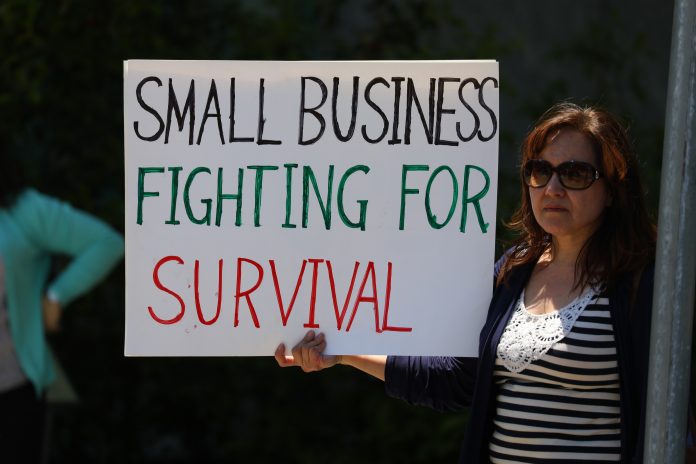CFIB urges permanent end to small business lockdowns
Business lockdowns and restrictions first hit Canada a year ago this week. One year in, only 62 per cent of businesses are fully open, 44 per cent are fully staffed, and less than a third (31 per cent) are making normal sales, according to the latest data by the Canadian Federation of Independent Business (CFIB).
As a result, many business owners are delaying retirement, grappling with mounting debt or facing mental burnout. They are also leaping into the digital sphere at an unprecedented pace or getting out of the game entirely, finds the latest report by CFIB, One Year of COVID-19: Seven Ways the World Has Changed for Small Business.
“Small businesses have seen it all this past year, from devastation to digital innovation. It’s clear this is going to have an impact for years to come,” said Simon Gaudreault, CFIB’s senior director of national research.
Retirement un-planned
Two fifths (42 per cent) of small business owners are delaying their retirement as a result of the pandemic, while 5 per cent will retire earlier than planned. Many business owners rely on the sale of their business to finance their retirement, but 55 per cent report that the value of their business has dropped after months of COVID-19 restrictions. Additionally, 7 per cent of business owners have dipped into their retirement savings to finance their business.
“The impact on retirement plans underscores just how profoundly hard-hit small business owners and their families have been by this pandemic,” added Gaudreault.
Debt overload
The average small business is now more than $170,000 in debt. Three quarters (76 per cent) of businesses that have taken on debt say it will take them over a year to repay, and 11 per cent are worried they may never be able to repay it.
Mental burnout
Nearly half of business owners (48 per cent) report they have suffered from mental health issues as a result of the pandemic and 46 per cent have had to work significantly longer hours.
Leaping into the digital sphere
A third of all small businesses are now selling online, an increase of 152,000 new entrants into the eCommerce market since the start of the pandemic. Retailers, arts and recreation (e.g. gyms), hospitality (e.g. restaurants), and health services businesses are the biggest adopters—not surprising as they have also been the hardest hit by lockdowns.
Fewer small businesses
One in six (181,000) small businesses is at risk of permanently closing. Adding in the 58,000 businesses that became inactive in 2020, Canada could lose a full 20 per cent of its businesses by the end of the pandemic.
“Many small businesses are no longer in business or are unsure of their future. CFIB itself has 15,000 fewer members as Canada enters a second year of the pandemic,” noted Dan Kelly, CFIB’s president. “While CFIB is proud to provide any small business owner with free support until the pandemic is over, provinces need to ensure they find a way to end lockdowns for good across the country.”
“Despite being told lockdowns were a short-term measure to ‘flatten the curve,’ many small businesses—including those in Canada’s largest city—remain locked down one year after COVID-19 began. It is well past time to shift gears as small firms have done more than their fair share in the fight against COVID-19. Until vaccines are widespread, lockdowns should be replaced with rapid testing and contact tracing to allow all small firms to safely serve Canadians once again,” Kelly concluded.








